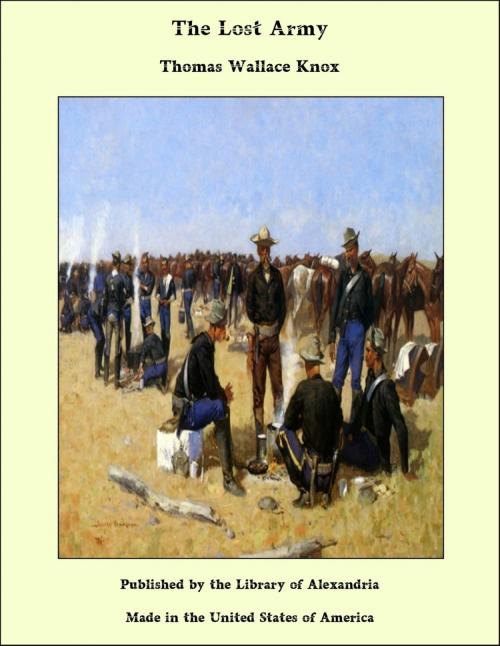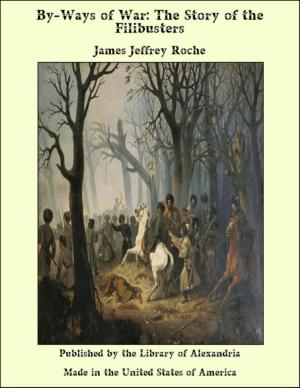| Author: | Thomas Wallace Knox | ISBN: | 9781465627827 |
| Publisher: | Library of Alexandria | Publication: | March 8, 2015 |
| Imprint: | Language: | English |
| Author: | Thomas Wallace Knox |
| ISBN: | 9781465627827 |
| Publisher: | Library of Alexandria |
| Publication: | March 8, 2015 |
| Imprint: | |
| Language: | English |
While Jack and Harry are waiting impatiently for the order that will give them a taste of military life, we will leave them for a while and go down the Mississippi river to the great city of St. Louis. The state of Missouri was one of those known as the “Border States,” as it lay on the border between North and South. It was the most northerly of the slaveholding states west of the Mississippi river, and the system of slavery did not have a strong hold upon her people. Probably the majority of her native-born citizens were in favor of slavery, or only passively opposed to it, but it contained two hundred thousand residents of German birth, and these almost to a man were on the side of freedom. When the question of secession was submitted to the popular vote, the state, by a majority of eighty-thousand votes, refused to secede; but the governor and nearly all the rest of the state authorities were on the side of secession, and determined to take Missouri out of the Union in spite of the will of the people. Governor Jackson was in full sympathy with the secession movement, and with the reins of power in his hands he made the most of his opportunities. General Sterling Price, who commanded the Missouri state militia, was equally on the side of slavery and its offspring, secession, though at first he opposed the movement for taking the state out of the Union, and was far more moderate in his councils than was the governor and others of the state officials. Earnestly opposed to these men were Francis P. Blair, junior, and other unconditional Union men, most of whom lived in St. Louis, and had for years been fighting the battle of freedom on behalf of the state. They believed and constantly argued that Missouri would be far better off as a free state than a slave one, while the opponents of slavery in the Eastern and extreme Northern states had based their arguments mainly on the ground of justice to the black man. The Free-State men of Missouri gave the rights of the negro a secondary place and sometimes no place at all, but confined themselves to showing that the state would be better off and more prosperous under freedom than under slavery. They had a good knowledge of human nature, similar to that displayed by the author of the old maxim that “Honesty is the best policy.”
While Jack and Harry are waiting impatiently for the order that will give them a taste of military life, we will leave them for a while and go down the Mississippi river to the great city of St. Louis. The state of Missouri was one of those known as the “Border States,” as it lay on the border between North and South. It was the most northerly of the slaveholding states west of the Mississippi river, and the system of slavery did not have a strong hold upon her people. Probably the majority of her native-born citizens were in favor of slavery, or only passively opposed to it, but it contained two hundred thousand residents of German birth, and these almost to a man were on the side of freedom. When the question of secession was submitted to the popular vote, the state, by a majority of eighty-thousand votes, refused to secede; but the governor and nearly all the rest of the state authorities were on the side of secession, and determined to take Missouri out of the Union in spite of the will of the people. Governor Jackson was in full sympathy with the secession movement, and with the reins of power in his hands he made the most of his opportunities. General Sterling Price, who commanded the Missouri state militia, was equally on the side of slavery and its offspring, secession, though at first he opposed the movement for taking the state out of the Union, and was far more moderate in his councils than was the governor and others of the state officials. Earnestly opposed to these men were Francis P. Blair, junior, and other unconditional Union men, most of whom lived in St. Louis, and had for years been fighting the battle of freedom on behalf of the state. They believed and constantly argued that Missouri would be far better off as a free state than a slave one, while the opponents of slavery in the Eastern and extreme Northern states had based their arguments mainly on the ground of justice to the black man. The Free-State men of Missouri gave the rights of the negro a secondary place and sometimes no place at all, but confined themselves to showing that the state would be better off and more prosperous under freedom than under slavery. They had a good knowledge of human nature, similar to that displayed by the author of the old maxim that “Honesty is the best policy.”















